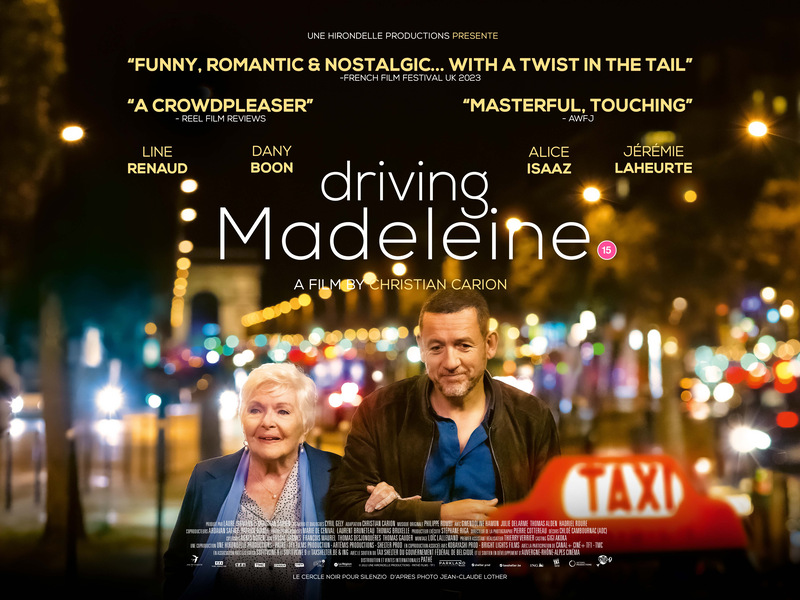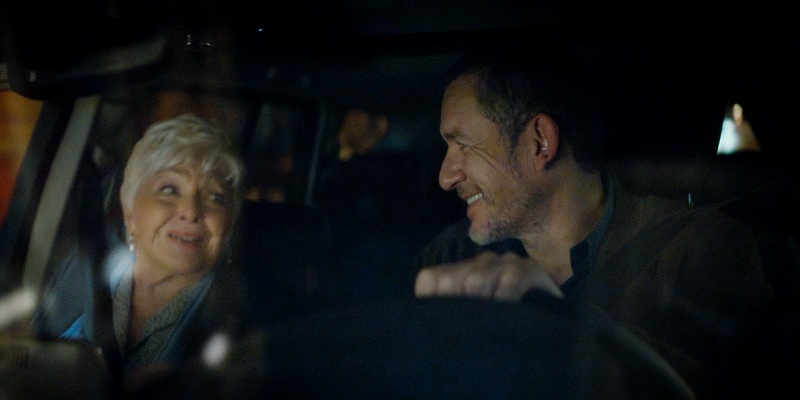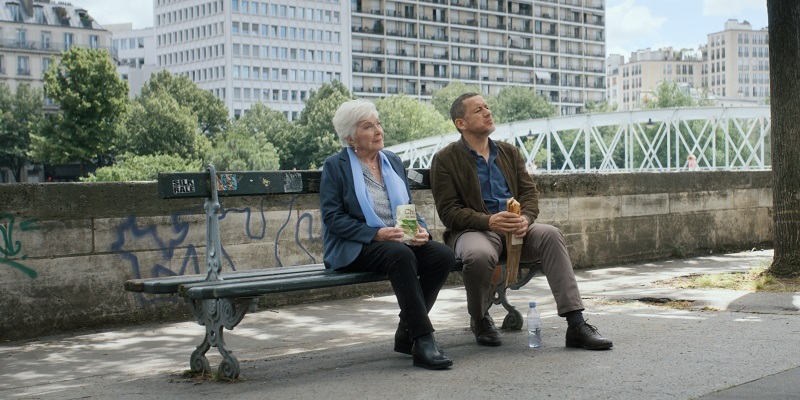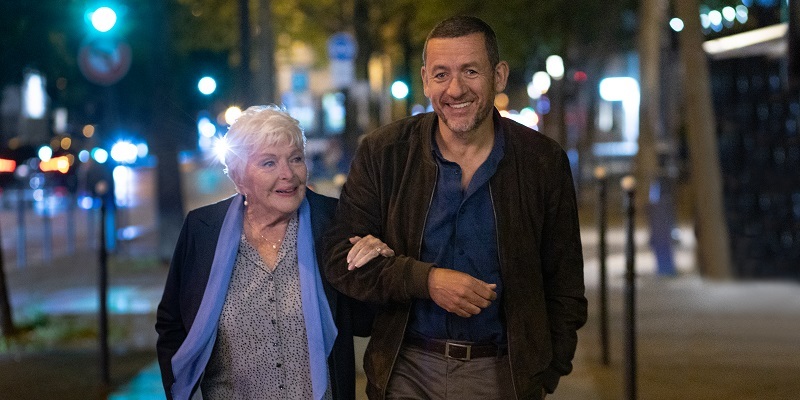
Review by
Benjamin Poole
Directed by: Christian Carion
Starring: Line Renaud, Dany Boon, Alice Isaaz, Jérémie Laheurte, Gwendoline Hamon

You can't beat the taxicab as a cinematic conceit in pursuance of
character study. The restricted space of the cab interior, with dual
participants separated by the semantic code of a glass partition, allows
for intimately charged interaction, with shifting power dynamics inherent
to the interface, too; the fare is the paymaster, but the driver at the
wheel has ultimate agency. And then in terms of exteriors the glass
windows of the cab become a proxy cinema screen, displaying the vistas of
the city in montage succession. Finally, in either denotative or
allegorical narrative terms, there is the inbuilt concept of a journey.
Night on Earth, Collateral (I'm sure there are others) are films which
utilise the taxicab as a Styxian vessel, traversing neon lit nights into
darker underworlds, the liminal taxi driver as an, at times unwilling,
Charon.

In Christian Carion's (with script support from Cyril Gély)
rather lovely Driving Madeleine, however, the mise-en-scene is pretty Paris en journée, with hapless
drive Charles (played by the ace named Dany Boon) hired to ferry
about the titular Madeline (icon and all round great bunch of lads
Line Renaud), a graceful woman of a certain age who is about to be
moved into a nursing home across the city. The former is on his arse, with
a stale marriage and a licence two points away from being taken away from
him, while the latter has come to the end of the road after a life which
has been marked by deeply dark events. Let's hope that sad sack Charles
picks up a few life lessons along the way from this increasingly
formidable fare, eh?

There are no real surprises in the denouement of
Driving Madeline, but what is perhaps unforeseen are the unpleasant specifics of
Madeline's backstory. Slight first act spoilers follow... As Charles
systematically takes Madeline to the places which have been significant in
her life, through flashback she tells him her story. We cut to 1940s
France, a fetishised Gallic mise-en-scene of amber lighting, thick smoke
and even thicker breakfast coffee. The céfran harmony doesn't last long
though, as it quickly transpires that Madeline (played in flashback by
Alice Isaaz) is a victim of domestic abuse and is beaten by her
husband (Jérémie Laheurte). Madeline details to Charles the
transition from victim to survivor via the fittingly grotesque revenge she
enacts upon Ray (who is a welder, and as Madeline employs one of his tools
to fight back following a barbiturate imbued whisky, the ensuing crime
invokes the glorious vindications of the female saviours of Scandi-Noir).
This first act climax is performed in the service of Madeline's son, who
she needs to protect from his unhinged father. It is poignant irony then
that when the case does go to court the events are not seen in Madeline's
favour and she is at risk of further, ultimate separation from little
Mathieu (sidenote - in 2020 there were 213,000 French women who were
reported as victims of domestic abuse, a figure that had barely decreased
over the preceding half decade: women are more at risk from someone they
know than anyone else, perhaps because these perpetrators know how to
cajole and manipulate to get away with it).

The harrowing plot which beats at the centre of
Driving Madeline is complimented by the picturesque dignity
of the framing narrative, in which, via its
Before Sunrise meets
Driving Miss Daisy structures, offers a bittersweet tale of
redemption and acceptance. Early in the film, there is a pointed shot of
the Notre Dame cathedral, which is still under reconstruction. It's a
symbolic reminder that things do change, and that fortune is often
outrageous, but there is always time and space to repair. A bromide as
anodyne as one of young Madeline's cocktails, perhaps, but one that
is nonetheless true and reaffirming.

Driving Madeleine is on UK/ROI
VOD from February 26th.

